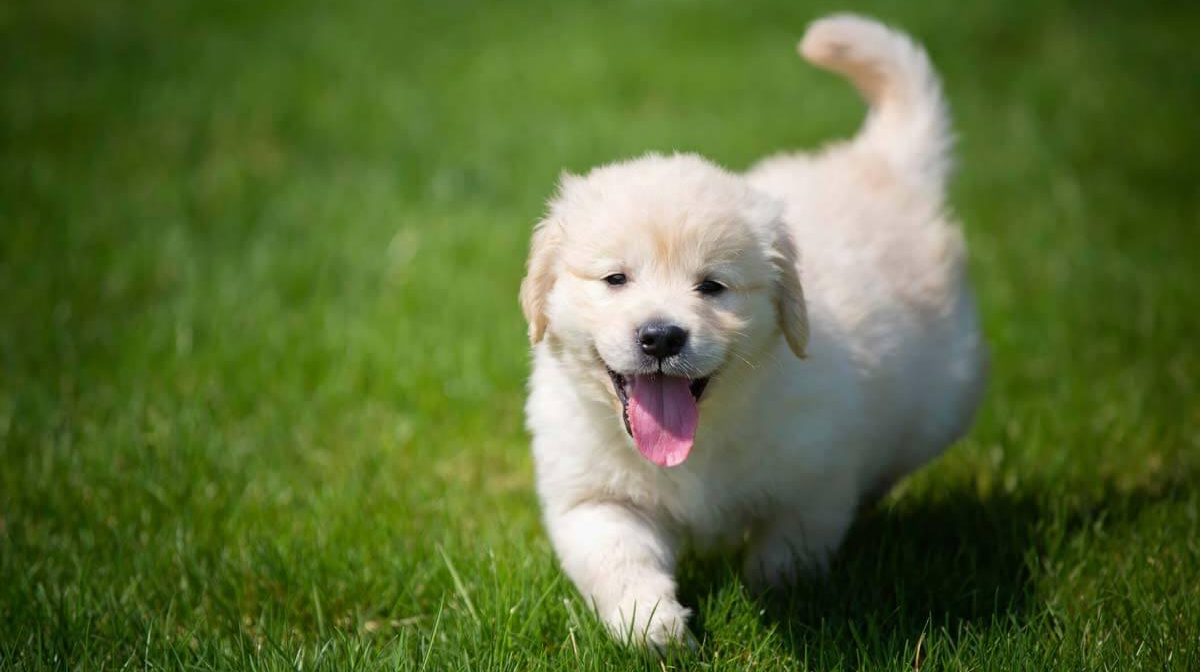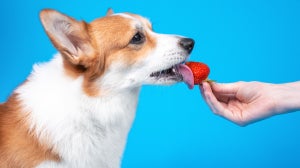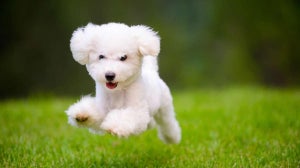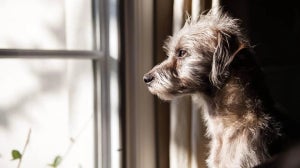
One thing you should definitely expect if you’re a puppy owner is for their energy levels to be quite high. Some dog breeds (and breed crosses) are, by their very nature, more spirited than others, but does that mean you have a hyperactive puppy on your hands?
Puppies often have bounds of energy that they must use up in order to remain happy and healthy, and understanding puppy energy levels is crucial when it comes to managing your dog’s activeness. James Wellbeloved investigates puppy energy levels and shows how you can help your canine companion grow into a well-behaved, calm dog.
WHY DO PUPPIES HAVE SO MUCH ENERGY?
Like human infants, puppies are experiencing the world for the first time. They will naturally be testing boundaries at this stage in their life, one of which is how fast they can run. Consequently, it’s only natural to expect your puppy to be a bit boisterous early on – especially if you got them at a very young age. Puppy exercises and games can be helpful here, so be sure to learn about them as a way of keeping your dog’s energy in check.
Puppy hyperactivity tends to be a phase, and they usually grow out of it as time goes by. However, if it’s been a while and you’re unsure about whether you’ve got a hyper puppy on your hands, you can always contact a vet for advice or reassurance.
PUPPY ENERGY LEVELS BY AGE
Puppy energy levels will almost certainly change as they grow. Likewise their activity needs to undergo a shift too, as outlined here:
Birth to 10 weeks – this is the age at which puppies start exploring, usually with their mouths, and you can also expect plenty of running, jumping and even playfighting, particularly if there are other dogs around
10-16 weeks – you will start to notice your puppy entering an almost adolescent-like phase, continuing to explore while occasionally ignoring your commands. Don’t worry though; this is a normal part of their development, and patience is key here.
Four to six months – following their “teenage” phase, puppies start to exhibit more adult-like dog behaviour, which includes playfighting with other dogs, so make sure yours is adequately socialised up to this point
From six months up to two years – your puppy will reach adult dog size and slowly begin to transition out of their puppyhood; however, remember that this is a process, and be patient whenever they exhibit younger puppy-like behaviours
It’s important to prepare for your puppy to experience these changes, and that you’re there for them in the process. If at any point you become concerned about your puppy’s needs, get in touch with a vet for their professional opinion.
 HOW TO CALM A HYPER PUPPY
HOW TO CALM A HYPER PUPPY

Most of the time, puppies – whether they’re “hyper” or not – can benefit from some straightforward advice that helps them remain calm, comfortable and above all, healthy and happy. These include:
Setting a fixed schedule – puppies need clear boundaries, and establishing these early for things like walks, sleep and playtime will let them know when it’s OK to be more or less active than usual
Providing more activity in the home – take time to provide your puppy with positive experiences that engage them mentally as well as physically (e.g. teaching new tricks, like how to sit or come to you)
Not reinforcing hyperactive behaviour – this is often how puppies seek attention, so don’t give in right away; ignore them until they calm down a bit, then reward their good behaviour with some happy attention
Being patient and understanding – while you may be feeling stressed, showing this emotion to your hyper puppy could make things worse. Remaining calm and providing a steady influence will help them learn this important behaviour and go a long way to stabilising their energy levels.
If your puppy doesn’t respond to these techniques after making them a regular part of their routine, get in touch with a vet straight away as there could be a bigger issue here, such as anxiety.
A hyper puppy isn’t usually cause for concern, as making a few positive changes to their lifestyle will help many young dogs settle themselves naturally. If puppy hyperactivity does worry you though, make sure you ask your vet about it and get their professional opinion on what’s best for your dog’s specific situation.









